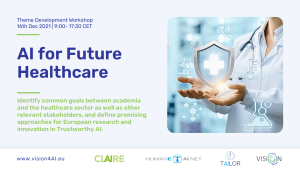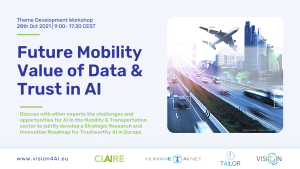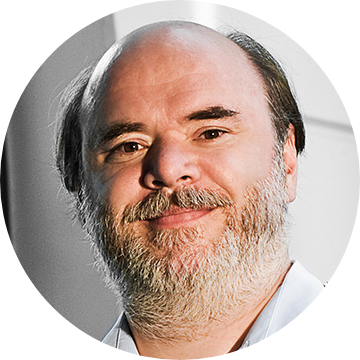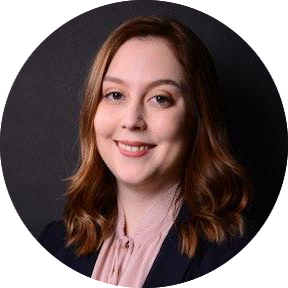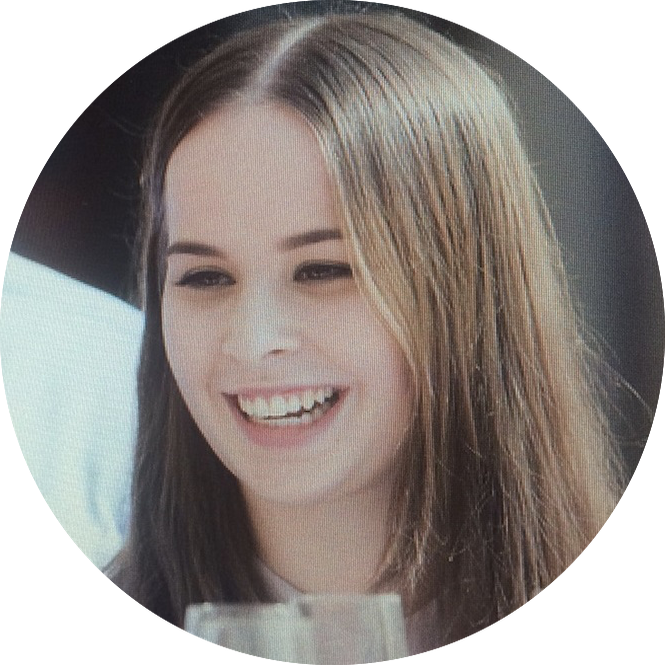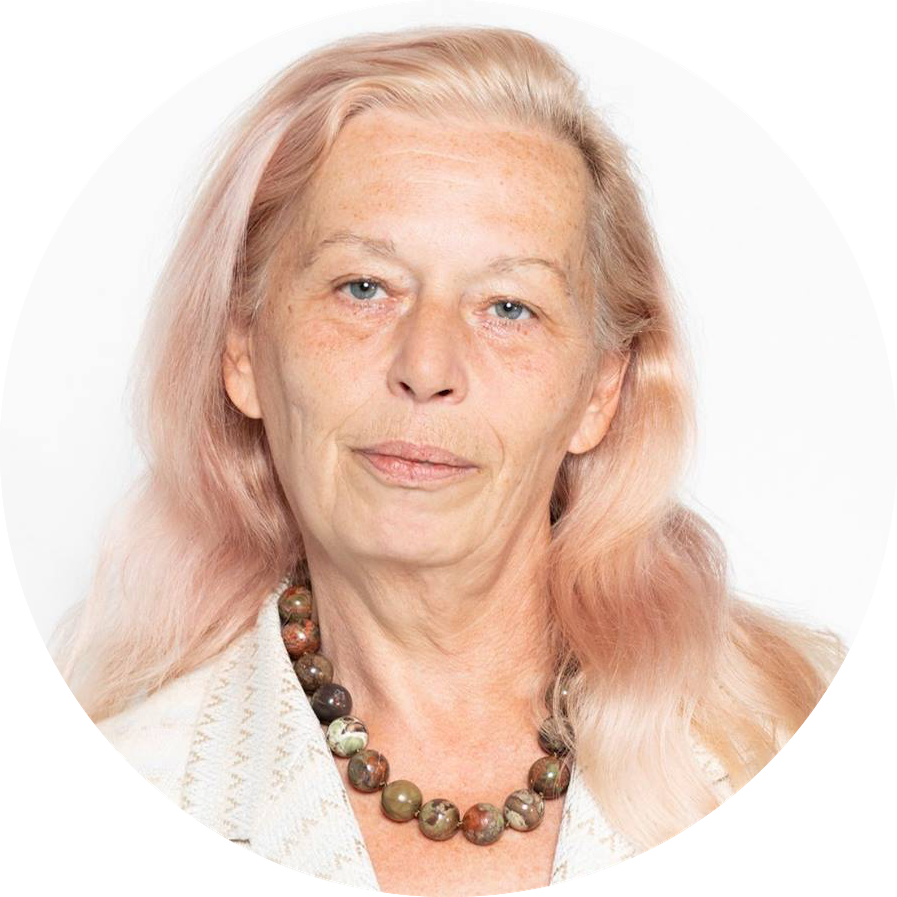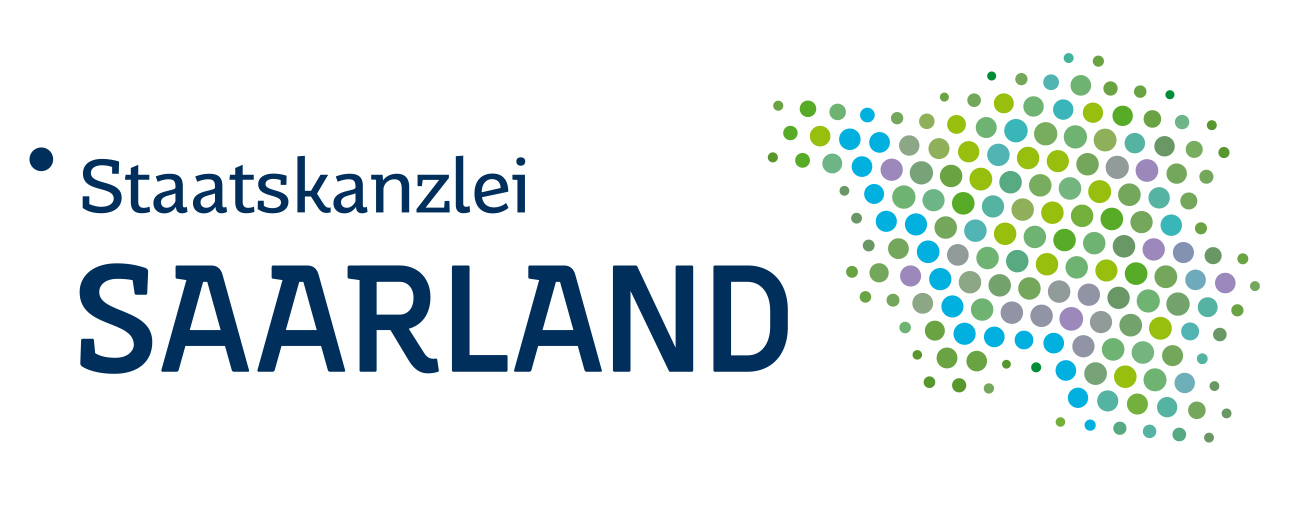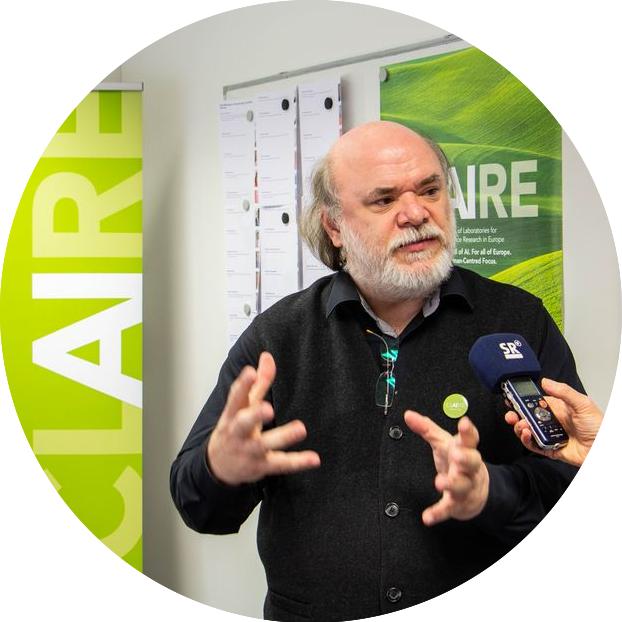
“CERN is an excellent model of what we plan to achieve with CLAIRE. The core research is done by many excellent researchers and labs distributed across Europe and the world. But by coordinating their research, they get much more leverage and wider recognition in all areas.”
Prof. Dr.-Ing. Philipp Slusallek, Vice-Chair of the Board and Director of Strategy
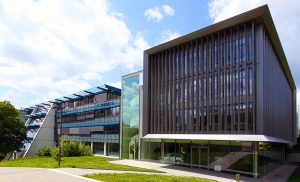
Established in April 2019 as the very first CLAIRE office, we are located at DFKI Saarbrücken, in the heart of the border triangle between France, Luxembourg and Germany. This location offers the perfect opportunity for cooperation in the Greater Region and beyond, this is why we are the contact point for this region, Germany and even Austria. Among many other activities, our main focus is on connecting academia and industry. Accordingly, we are also mainly involved in the newly founded Innovation Network (For-profit members of CLAIRE) and the European Networks of AI Excellence Centers.
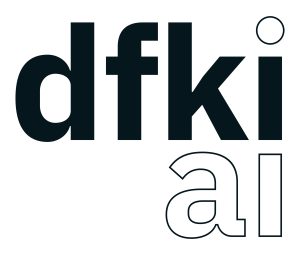 The German Research Center for Artificial Intelligence (DFKI) was one of the founding institutions when CLAIRE was established in 2018, and Prof. Dr.-Ing. Philipp Slusallek, who is Executive Director at DFKI Saarbrücken and Scientific Director of the DFKI research department Agents and Simulated Reality, is one of the three co-initiators of CLAIRE. Since the establishment of CLAIRE AISBL in January 2020, he also serves as its Vice-Chair of the Board and Director of Strategy. The German CLAIRE Office is supporting Professor Philipp Slusallek in this role and contributes also to the setup and implementation of internal structures and processes within CLAIRE. Furthermore, we are successfully liaising with national and regional governments, especially with our neighbour countries in Luxembourg and France. The Saarbrücken team was also significantly involved in the organisation and implementation of AI-related Theme Development Workshops on Public Sector, Mobility & Transportation and Health.
The German Research Center for Artificial Intelligence (DFKI) was one of the founding institutions when CLAIRE was established in 2018, and Prof. Dr.-Ing. Philipp Slusallek, who is Executive Director at DFKI Saarbrücken and Scientific Director of the DFKI research department Agents and Simulated Reality, is one of the three co-initiators of CLAIRE. Since the establishment of CLAIRE AISBL in January 2020, he also serves as its Vice-Chair of the Board and Director of Strategy. The German CLAIRE Office is supporting Professor Philipp Slusallek in this role and contributes also to the setup and implementation of internal structures and processes within CLAIRE. Furthermore, we are successfully liaising with national and regional governments, especially with our neighbour countries in Luxembourg and France. The Saarbrücken team was also significantly involved in the organisation and implementation of AI-related Theme Development Workshops on Public Sector, Mobility & Transportation and Health.
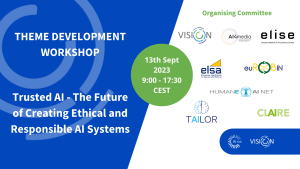
2nd cross-cutting TDW: Trusted AI – The Future of Creating Ethical and Responsible AI Systems
13 September 2023 | 9:00 – 17:00 CET
The 2nd cross-cutting Theme Development Workshop (TDW) on “Trusted AI: The Future of Creating Ethical and Responsible AI Systems”, jointly organised by AI4Media, ELISE, ELSA, euRobin, HumanE-AI-Net, CLAIRE, TAILOR and VISION, took place on 13 September 2023, with the aim of developing and identifying the most promising and emerging themes related to the overarching concept of Trustworthy AI. At this one-day workshop, experts from academia, industry, and policy jointly developed initial impetus for the European Artificial Intelligence (AI) Research and Innovation Roadmap. Stimulated by introductory talks and presentations by selected experts, participants actively discussed a variety of topics in the breakout sessions and shared their key findings in the subsequent plenary presentations. In addition, some initial ideas for follow-up activities and further collaborations were identified.
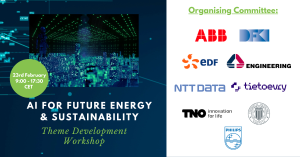
TDW VI: AI for Future Energy & Sustainability
23 February 2023 | 9:00 – 17:00 CET
The Joint Theme Development Workshop (TDW) co-organised by CLAIRE, TAILOR and VISION on “AI for Future Energy & Sustainability” took place on the 23rd of February 2023 with the aim to develop and identify the most promising and emerging AI topics in the Energy sector. At this one-day workshop, experts from academia, industry and politics jointly developed initial input for theEuropeanArtificial Intelligence (AI) research and innovation roadmap. Inspired by introductory speeches and presentations from selected experts, the participants actively discussed a wide variety of topics during the breakout sessions and shared their main results in the subsequent plenary presentations. Furthermore, some initial ideas for follow-up activities and further collaborations have been identified.

TDW IV: AI for Future Manufacturing
10 May 2022 | 9:00 – 17:00 CET
The Joint Theme Development Workshop (TDW) co-organised by CLAIRE, TAILOR and VISION on “AI for Future Manufacturing” took place on the 10th of May2022 with the aim to develop and identify the most promising and emerging AI topics in the manufacturing sector. At this one-day workshop, experts from academia, industry and politics jointly developed initial input for the European Artificial Intelligence (AI) research and innovation roadmap. Inspired by introductory speeches and presentations from selected experts, the participants actively discussed a wide variety of topics during the breakout sessions and shared their main results in the subsequent plenary presentations. Furthermore, some initial ideas for follow-up activities and further collaborations have been identified.

1st cross-cutting TDW: AI: Mitigating Bias and Disinformation
18 May 2022 | 9:00 – 17:00 CET
The TDW Organising Team from CLAIRE, AI4Media, HumanE-AI-Net, TAILOR and VISION is delighted to announce the first cross-cutting Theme Development Workshop “AI: Mitigating Bias and Disinformation”, which will take place via Zoom on the 18th of May 2022.
During the workshop, the participants will have the opportunity to discuss with other experts the importance and the use of AI in terms of bias and disinformation. Further information about the topics and the programme can be found in the flyer, some more general information about Theme Development Workshops and its target groups is available via the VISION website.
TDW III: AI for Future Healthcare
16.12.2021 9:00- 17:00 CEST
Identify common goals between academia and the healthcare sector as well as other relevant stakeholders, and define promising approaches for European research and innovation in Trustworthy AI.
Theme Development Workshops cut across multiple ICT-48 Networks of AI Excellence Centres while bringing together researchers, industry representatives, and other stakeholders to identify industrial trends and needs and match these to AI capabilities in Europe. TDWs are co-organised by the VISION project in close cooperation with the TAILOR and HumanE-AI-Net projects as well as with CLAIRE AISBL.
TDW II: Future Mobility – Value of Data & Trust in AI
28.10.2021 9:00- 17:30 CEST
Discuss with other experts the challenges and opportunities for AI in the Mobility & Transportation sector to jointly develop a Strategic Research and Innovation Roadmap for Trustworthy AI in Europe.
Theme Development Workshops cut across multiple ICT-48 Networks of AI Excellence Centres while bringing together researchers, industry representatives, and other stakeholders to identify industrial trends and needs and match these to AI capabilities in Europe. TDWs are co-organised by the VISION project in close cooperation with the TAILOR and HumanE-AI-Net projects as well as with CLAIRE AISBL.
KI 2021 – The German Chapter of CLAIRE
28.09.2021 09:00-15:00 CET
Trusted AI – Unattainable Vision or Social Mission? Opportunity or burden? How can it be implemented?
Such questions were the focus of the first meeting of the German chapter of CLAIRE, the Confederation of Laboratories for AI Research in Europe. Trusted AI puts a special emphasis on providing (verifiable) guarantees for the correct functioning of modern AI-based systems and, in this sense, significantly tightens the rather unspecific term Trustworthy AI.
The meeting brought CLAIRE members together with representatives from industry, politics and academia and offered all interested parties the opportunity to get in touch with CLAIRE, learn about CLAIRE’s mission and discuss the topic of Trusted AI.
The one-day event took place online on 28 September as part of KI 2021, the 44th German Conference on Artificial Intelligence.
TDW I: AI in the Public Sector
07.09.2021 & 09.09.2021 9:00- 13:30 CEST
Identifying common goals between academia and the public sector as well as other relevant stakeholders, and define promising approaches for European research and innovation in Trustworthy AI.
Theme Development Workshops cut across multiple ICT-48 Networks of AI Excellence Centres while bringing together researchers, industry representatives, and other stakeholders to identify industrial trends and needs and match these to AI capabilities in Europe. TDWs are co-organised by the VISION project in close cooperation with the TAILOR and HumanE-AI-Net projects as well as with CLAIRE AISBL.
Innovation Network:
Research Network:
- AI.DA (AI at TU Darmstadt), TU Darmstadt, Darmstadt (contact: Kristian Kersting)
- Algorithm Engineering, Hasso Plattner Institute, Potsdam (contact: Tobias Friedrich)
- Applied Computational Linguistics: Discourse Research Lab, University of Potsdam, Potsdam (contact: Manfred Stede)
- Artificial General Intelligence Sentinel Initiative (AGISI), Belin (contact: Colin Lewis and Dagmar Monett) (also in Warsaw, Poland)
- Artificial Intelligence Lab, Otto von Guericke University Magdeburg, Magdeburg (contact: Sebastian Stober)
- Artificial Intelligence Research Group, Harz University of Applied Sciences, Wernigerode (contact: Frieder Stolzenburg)
- Autonomous Intelligent Systems, University of Freiburg, Freiburg (contact: Wolfram Burgard)
- Autonomous Intelligent Systems Lab, University of Bonn, Bonn (contact: Sven Behnke)
- Autonomous System, University of Applied Science Gelsenkirchen, Gelsenkirchen (contact: Hartmut Surmann)
- Bremen Spatial Cognition Center, University of Bremen, Bremen (contact: Christian Freksa)
- Center for Artificial Intelligence, RWTH Aachen University, Aachen (contact: Bastian Leibe)
- Chair of Process and Data Science (PADS) (contact: Wil van der Aalst)
- Computer Vision Group (CVG) (contact: Bastian Leibe)
- Knowledge-Based Systems Group (KBSG) (contact: Gerhard Lakemeyer)
- Institute for Data Science in Mechanical Engineering (DSME) (contact: Sebastian Trimpe)
- Chair of Automata Theory, TU Dresden, Dresden (contact: Franz Baader)
- Chair of Information Systems and New Media, University of Siegen, Siegen (contact: Volker Wulf)
- Cognitive Systems Group, University of Bamberg, Bamberg (contact: Ute Schmid)
- colab Potsdam / foundations of computational linguistics, Department of Linguistics, University of Potsdam, Potsdam, Germany (contact: David Schlangen)
- Computational Logic Group, TU Dresden, Dresden (contact: Sebastian Rudolph)
- Computer Science Department, Saarland University, Saarbrücken (contact: Philipp Slusallek)
- Foundations of AI Research Group (contact: Jörg Hoffmann)
- Spoken Language Systems Group (contact: Dietrich Klakow)
- Chair for Clinical Bioinformatics (contact: Andreas Keller)
- Big Data Analytics Group (contact: Jens Dittrich)
- Computer Vision and Machine Learning Systems, University of Münster, Münster (contact: Benjamin Risse)
- Computer Vision Group, University of Freiburg, Freiburg (contact: Thomas Brox)
- Data & Knowledge Engineering Group, Heinrich-Heine-University, Düsseldorf (contact: Stefan Dietze)
- Decision and Operation Technologies, Bielefeld University, Bielefeld (contact: Kevin Tierney)
- Department of Informatics, Universität Hamburg, Hamburg (contact: Frank Steinicke)
- Fachgebiet Intellektik, Darmstadt University of Technology, Darmstadt (contact: Wolfgang Bibel)
- Fachgebiet Software Engineering, Technische Universität Darmstadt, Darmstadt (contact: Reiner Hähnle)
- Foundations of AI lab, Albert-Ludwigs-Universität, Freiburg (contact: Bernhard Nebel)
- Frankfurt Big Data Lab, Goethe University Frankfurt, Frankfurt/Main (contact: Roberto V. Zicari)
- Institute for Information, Telecommunications and Media Law (ITM), Westfälische Wilhelms-Universität Münster (University of Münster), Münster (contact: Thomas Hoeren)
- DFKI – German Research Center for Artificial Intelligence, Kaiserslautern (Headquaters)(contact: Philipp Slusallek)
- Agents and Simulated Reality, Saabrücken (contact: Philipp Slusallek)
- Intelligent Networks, Kaiserslautern (contact: Hans D. Schotten)
- Multilinguality and Language Technology, Kaiserslautern (contact: Josef van Genabith)
- Plan-Based Robot Control, Osnabrück (contact: Joachim Hertzberg)
- Robotics Innovation Center, Bremen (contact: Frank Kirchner)
- Smart Data and Knowledge Services, Kaiserslautern (contact: Andreas Dengel)
- Smart Service Engineering, Saarbrücken (contact: Wolfgang Maaß)
- Speech and Language Technology, Berlin (contact: Sebastian Möller)
- Helmholtz School for Data Science in Life, Earth and Energy (HDS-LEE), Forschungszentrum Jülich GmbH, Jülich (contact: Wolfgang Wiechert)
- Human-Centered Multimedia, Universität Augsburg, Augsburg (contact: Elisabeth André)
- Information Systems and Statistics Group, Department of Information Systems, University of Münster, Münster (contact: Prof. Dr. Heike Trautmann)
- Institute AIFB – Institute for Applied Informatics and Formal Description Models, Karlsruhe Institute of Technology (KIT), Karlsruhe (contact: York Sure-Vetter)
- Institute for Artificial Intelligence, University Bremen, Bremen (contact: AI-Office)
- Institute for Web Science and Technologies, Universität Koblenz-Landau, Koblenz (contact: Steffen Staab)
- Institute of Computer Science, Freie Universität Berlin, Berlin (contact: Christoph Benzmüller)
- Dahlem Center for Machine Learning and Robotics (contact: Christoph Benzmüller and Raul Rojas)
- Institute of Information Processing (tnt), Leibniz University Hannover, Hannover (contact: Marius Lindauer)
- Institute of Information Systems, Hof University of Applied Sciences, Hof (contact: René Peinl)
- Institute of Neuroscience and Medicine (INM-7), Forschungszentrum Jülich GmbH, Jülich (contact: Simon B. Eickhoff)
- Institute of Software Technology, University of Stuttgart, Stuttgart (contact: Stefan Wagner)
- Institut für Neuroinformatik, Ruhr-Universität Bochum, Bochum (contact: Gregor Schöner)
- Optimization of Adaptive Systems Group (contact: Tobias Glasmachers)
- Intellectual property rights in distributed information infrastructures, FIZ Karlsruhe – Leibniz Institute for Information Infrastructure, Eggenstein-Leopoldshafen (contact: Dara Hallinan)
- Intelligent Systems Research Group, Leipzig University, Leipzig (contact: Gerhard Brewka)
- Knowledge-Based Systems group, Osnabrück University, Osnabrück (contact: Joachim Hertzberg)
- Knowledge-Based Systems Group, RWTH Aachen University, Aachen (contact: Gerhard Lakemeyer)
- Knowledge creates² Data, University Regensburg, Regensburg (contact: Bernd Ludwig)
- Knowledge Technologies for the Social Sciences, GESIS – Leibniz Institute for the Social Sciences, Cologne (contact: Stefan Dietze)
- L3S Research Center, Leibniz Universität Hannover, Hannover (contact: Wolfgang Nejdl)
- Lab for Computer Graphics and Virtual Reality, University of Bremen, Bremen (contact: Gabriel Zachmann)
- Lehrstuhl Informatik 6 – Human Language Technology and Pattern Recognition, RWTH Aachen University, Aachen (contact: Ralf Schlüter)
- Machine Learning & Robotics Lab, University of Stuttgart, Stuttgart (contact: Marc Toussaint)
- Machine Learning Group, Bielefeld University, Bielefeld (contact: Barbara Hammer)
- Machine Learning Research Group, University of Freiburg, Freiburg (contact: Frank Hutter)
- Medical Data Donors e.V., Erlangen (contact: Andreas Maier)
- Mobile Autonomous Systems & Cognitive Robotics Institute, FH Aachen University of Applied Sciences, Aachen (contact: Alexander Ferrein)
- Neurorobotics Lab, University of Freiburg, Freiburg (contact: Joschka Boedecker)
- PRIA – Pattern Recognition and Image Analysis Group, University of Münster, Münster (contact: Xiaoyi Jiang)
- Pattern Recognition Lab, Friedrich-Alexander-University Erlangen-Nuremberg, Erlangen (contact: Andreas Maier)
- Potassco laboratory, University of Potsdam, Potsdam (contact: Torsten Schaub)
- Research Group Theory of Artificial Intelligence, University of Bremen, Bremen (contact: Carsten Lutz)
- Robot Learning Lab, University of Freiburg, Freiburg (contact: Abhinav Valada)
